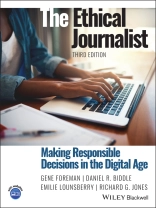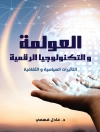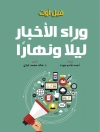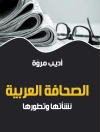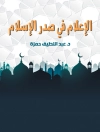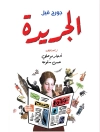The Ethical Journalist
Praise for the Third Edition of The Ethical Journalist
‘A riveting examination of journalism ethics, updated for the seismic change that is now an industry constant. The Ethical Journalist is written to fortify journalism students, but real-life examples of everything from faked photographs to reporting on presidential lies make it valuable to all of us who care about the news.’
ANN MARIE LIPINSKI, CURATOR OF THE NIEMAN FOUNDATION AT HARVARD UNIVERSITY AND FORMER EDITOR OF THE CHICAGO TRIBUNE
Praise for the Earlier Editions
‘The book is superb — the definitive work on journalism ethics and practices. It should be a basic text in every school of journalism.’
GENE ROBERTS, FORMER EXECUTIVE EDITOR OF THE PHILADELPHIA INQUIRER AND FORMER MANAGING EDITOR OF THE NEW YORK TIMES
‘At a time when the internet has turned journalism inside out and blown up long-held traditions, the need for media ethics is even more critical. This is the book to help guide students and the rest of us through the revolution.’
ALICIA C. SHEPARD, FORMER NPR OMBUDSMAN
The third edition of The Ethical Journalist is a comprehensive examination of current issues in the field of journalism ethics, researched and written by four journalists with experience in both the newsroom and the classroom. It gives students and professionals the tools they need to navigate the challenges of journalism today, first explaining the importance of ethics in journalism and then putting a decision-making strategy to work. The text is supplemented by case studies and essays, and two companion websites provide additional materials for educators and a forum for all users to discuss new topics in journalism ethics as they arise.
Jadual kandungan
Part I: A Foundation for Making Ethical Decisions 1
1 Why Ethics Matters in Journalism 3
2 Ethics: The Bedrock of a Society 17
3 The News Media’s Role in Society 25
4 For Journalists, a Clash of Moral Duties 43
5 The Public and the Media: Love and Hate 63
6 How the ‘Trump Effect’ Challenged Journalism 77
7 Applying Four Classic Theories of Ethics 99
8 Using a Code of Ethics as a Decision Tool 109
9 Making Moral Decisions You Can Defend 117
Part II: Putting Journalism Ethics to Work 131
10 Getting the Facts Right and Being Fair 133
11 Showing Empathy for People in the News 167
12 Avoiding Conflicts: Appearances Count 183
13 Lifting the Curtain on How Journalism Is Done 209
14 Navigating Social Media’s Uneven Terrain 227
15 Covering a Diverse, Multicultural Society 247
16 Dealing With Sources of Information 265
17 Making News Decisions About Privacy 285
18 Making Decisions About Offensive Content 305
19 Deception: A Risky, Controversial Tool 321
20 Ethics Issues in Visual and Audio Journalism 343
21 Stolen Words and Invented Facts 367
22 The Business of Producing Journalism 383
Thoughts to Take With You 398
Glossary 400
Index 406
Mengenai Pengarang
GENE FOREMAN managed newsroom operations of The Philadelphia Inquirer for 25 years, a period in which the staff won eighteen Pulitzer Prizes. He then taught for nine years at Pennsylvania State University as its inaugural Foster Professor.
DANIEL R. BIDDLE was one of three Inquirer reporters who won a Pulitzer Prize for investigative stories in 1986. Later he was an editor directing investigative reporting. He teaches at the University of Pennsylvania and the University of Delaware.
EMILIE LOUNSBERRY was a reporter for The Inquirer for 27 years, producing award-winning coverage of trials and legal issues. Since 2009 she has been an associate professor teaching journalism courses at The College of New Jersey.
RICHARD G. JONES began his reporting career at The Inquirer before moving to The New York Times, where he became an associate editor. After directing the teaching of journalism, ethics, and democracy at the University of Notre Dame, he was named The Inquirer’s managing editor for Opinion.
